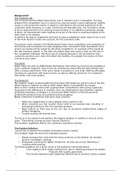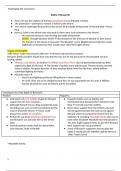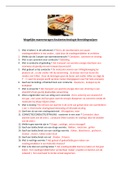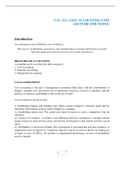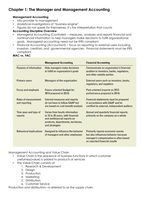2000721253.
20/U/21253/PS.
SCHOOL OF LAW
L .2110.
FOUNDATIONS OF LAND LAW.
REGISTRATION NUMBER; 20/U/21253/PS
STUDENT NUMBER; 2000721253
, 2000721253.
20/U/21253/PS.
A CRITIQUE OF THE PHENOMENA OF MAILO AS A LAND TENURE SYSTEM IN
UGANDA, ITS STRENGTHS WEAKNESS AND ITS POSSIBLE RESOLVE.
INTRODUCTION.
Mailo is a form of makeshift freehold system of land ownership system which is
predominantly used in the central region of Uganda which is home to Buganda kingdom. It
is recognized by the state and provided under the law1. It was birthed after the ascension to
the 1900 Buganda agreement between the British and the kingdom. In which the over
19,600 square miles of land were shared between the kingdom’s notables and colonial
masters under an arrangement where they would take part of the land as their private
property permanently and the rest would crown land. The word “mailo” is a Luganda
corruption of the word “mile” the land was at that time measured and allocated in square
miles. At the time approximately 1000 chiefs owned the large portions of land however as
time went on they sold, donated, inherited and therefore the land has defragmented.
It is important to note that according to historical background of land in Uganda especially in
Buganda, the land was customarily owned and was administered by clans, tribes and it was
a collective say on what the fate of the land in question was!. The leaders at the time, in my
opinion, betrayed their subjects by giving away their rights thereby leaving them landless
and squatters on their own land on which their ancestors had lived for generations and
generations. In the late 1920s’ mailo was infested with the bibanja holders who also sought
traditional and customary rights on the land 2. The bibanja holders were aggrieved by their
landlords who billed them with high taxes (busuulu) and a portion of their produce(envujjo)
which led to the Bataka uprisings in 1920 and shortly the Busuulu and envujjo laws 1928
were passed to regulate the rights and obligations of a kibanja holder and the landlord. The
law however had one loophole that if a mailo owner allowed a person to settle on their land,
the kibanja holder was deemed to enjoy an inheritable permanent right of occupancy
subject to payment of fixed annual rent. They would only evict them upon failure to pay the
said rent and that the eviction had to be confirmed by the court.
In the 1967, when Milton Obote came back to power abolished all kingdoms in Uganda all
land was administered by the state this drove away most of the Buganda notables most of
1
See section 2 Land Act Cap 227.
2
John Mugamba T. “Principles of Land Law in Uganda” fountain publishers,2002,pg10
20/U/21253/PS.
SCHOOL OF LAW
L .2110.
FOUNDATIONS OF LAND LAW.
REGISTRATION NUMBER; 20/U/21253/PS
STUDENT NUMBER; 2000721253
, 2000721253.
20/U/21253/PS.
A CRITIQUE OF THE PHENOMENA OF MAILO AS A LAND TENURE SYSTEM IN
UGANDA, ITS STRENGTHS WEAKNESS AND ITS POSSIBLE RESOLVE.
INTRODUCTION.
Mailo is a form of makeshift freehold system of land ownership system which is
predominantly used in the central region of Uganda which is home to Buganda kingdom. It
is recognized by the state and provided under the law1. It was birthed after the ascension to
the 1900 Buganda agreement between the British and the kingdom. In which the over
19,600 square miles of land were shared between the kingdom’s notables and colonial
masters under an arrangement where they would take part of the land as their private
property permanently and the rest would crown land. The word “mailo” is a Luganda
corruption of the word “mile” the land was at that time measured and allocated in square
miles. At the time approximately 1000 chiefs owned the large portions of land however as
time went on they sold, donated, inherited and therefore the land has defragmented.
It is important to note that according to historical background of land in Uganda especially in
Buganda, the land was customarily owned and was administered by clans, tribes and it was
a collective say on what the fate of the land in question was!. The leaders at the time, in my
opinion, betrayed their subjects by giving away their rights thereby leaving them landless
and squatters on their own land on which their ancestors had lived for generations and
generations. In the late 1920s’ mailo was infested with the bibanja holders who also sought
traditional and customary rights on the land 2. The bibanja holders were aggrieved by their
landlords who billed them with high taxes (busuulu) and a portion of their produce(envujjo)
which led to the Bataka uprisings in 1920 and shortly the Busuulu and envujjo laws 1928
were passed to regulate the rights and obligations of a kibanja holder and the landlord. The
law however had one loophole that if a mailo owner allowed a person to settle on their land,
the kibanja holder was deemed to enjoy an inheritable permanent right of occupancy
subject to payment of fixed annual rent. They would only evict them upon failure to pay the
said rent and that the eviction had to be confirmed by the court.
In the 1967, when Milton Obote came back to power abolished all kingdoms in Uganda all
land was administered by the state this drove away most of the Buganda notables most of
1
See section 2 Land Act Cap 227.
2
John Mugamba T. “Principles of Land Law in Uganda” fountain publishers,2002,pg10


